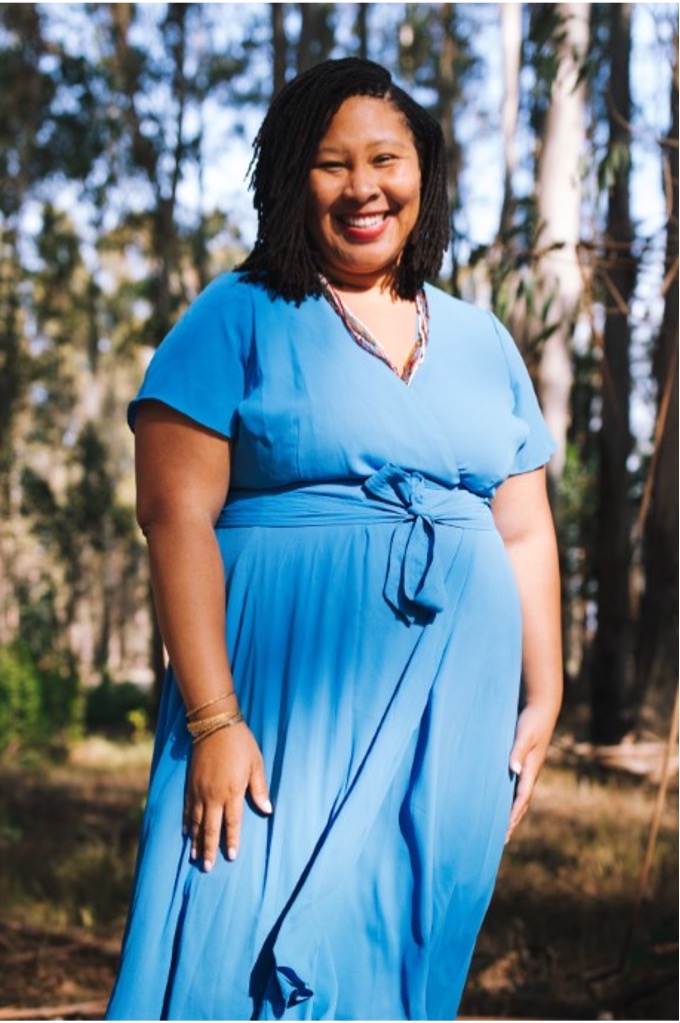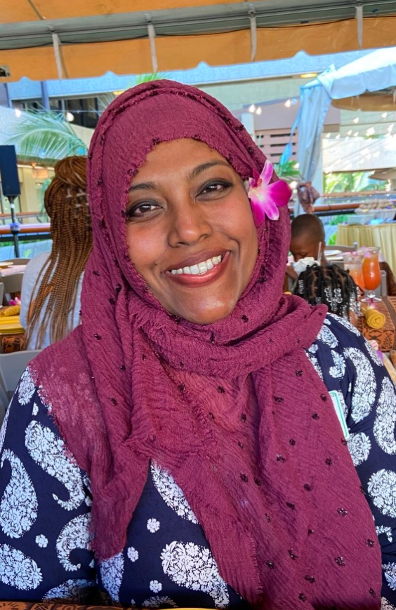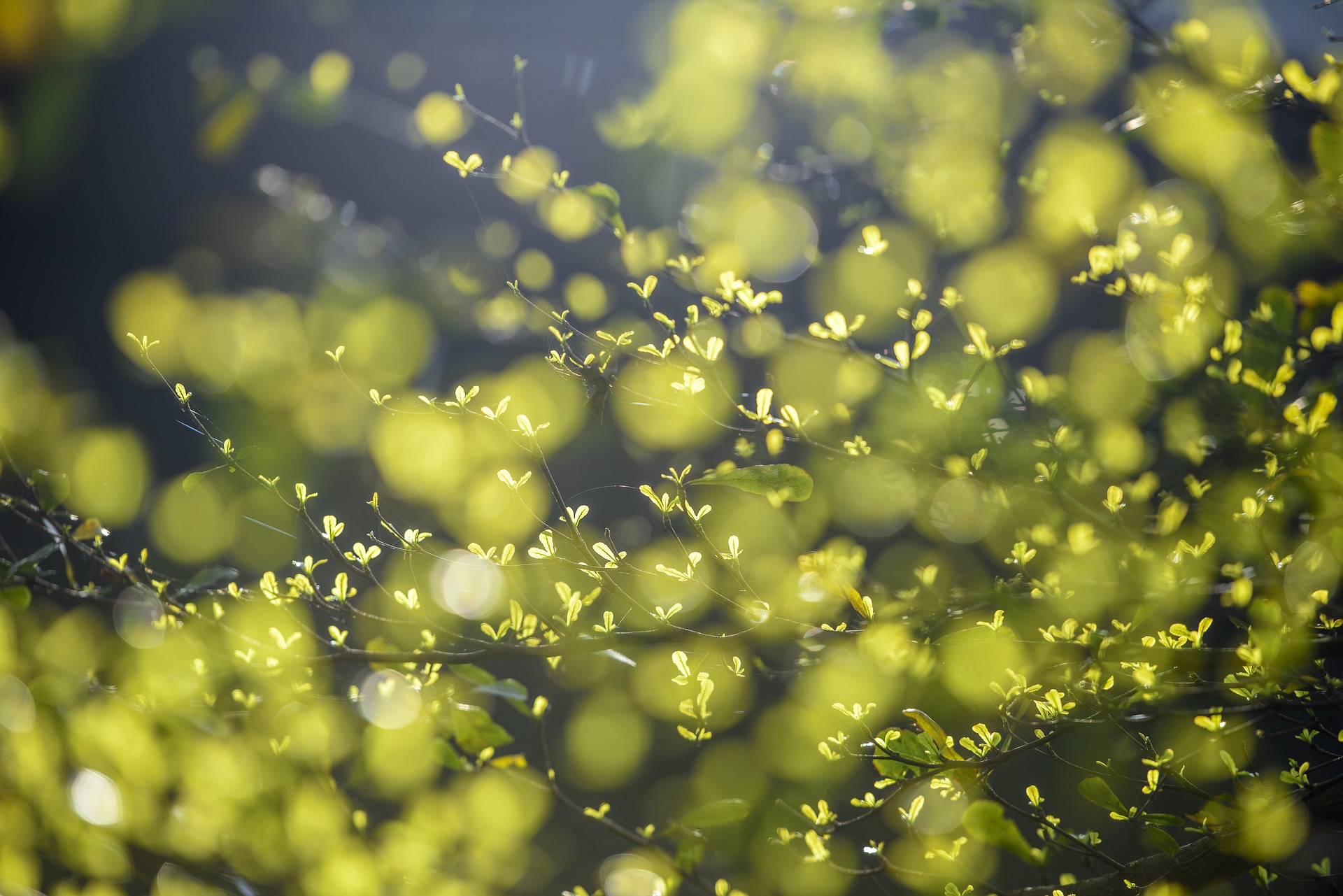Leading Through Solidarities
We are grateful to Dr. Whitneé L. Garrett-Walker for helping us deepen our thinking around what leading through solidarities entails and making connections between ideas that are important to us.
An Open Letter to Those Who Stand With Us
By Whitneé L. Garrett-Walker
Assistant Professor of Educational Leadership, Policy and Social Diversity
University of Toronto, OISE
Peace and Ná:wih!
This letter is for those who wish to be co-conspirators in the work of educational justice but are not sure how. Let this brief letter and my opening speech be a love note of things to consider as you walk the journey of standing with those who are members of historically marginalized and multiple oppressed communities.
When I think about the words solidarity, collective liberation, unity, and equity, I also think about Love, co-conspiratorship, decolonization, and collective freedom-dreaming into action. These are not just words, but a song, a breath of wind, a dance, a subversive and windy map to a destination that my ancestors knew we could reach.
On Decolonizing:
I begin with decolonization because it requires us to think about what is possible, versus what exists. We must operate from the space of possibility, not from within the confines of the boxes, labels, gerrymandering, politics and funding structures put before us. The types of schools that we need cannot exist because of our reliance on harmful colonial forms of domination.
As a collective, we must un-know and we must not be afraid to un-learn. We must not be afraid to be ‘called in’ especially when our fear and colonized ways of thinking and being are showing up. It is this space of possibility and acceptance that will guide us to become grounded in love as mutual respect for the sanctity of all land, life and learning (Tuck & Yang, 2012). It is not my intention to treat decolonization as a trivial choice. But it is a choice;. the only choice we have.
On Love:
Love is a sacred practice and is reserved for people who are determined to see the light in themselves, those around them, and the earth. We have a responsibility to support our youth and ourselves in harnessing this love (hooks, 2018). By not teaching students to locate power in themselves, we are teaching them to find solace and complacency in accepting domination from those with authority. This dominant way of existing is inextricably linked to whiteness and white supremacy culture in schools. When we intentionally teach and lead with our educational communities by being grounded in love, we cultivate the soil of each Wildseed we’ve planted, including those passed (Butler, 1999). These are the seeds of resistance, and from each seedling, births a generation of those who know how to resist without losing themselves or each other because of trust, commitment, respect and collective responsibility they have built with one another.
On Co-Conspiratorship:
To be clear, CO-conspirators are not just white cis-heterosexual, able-bodied, Christian people. CO-conspirators are folx who have a bit of social, financial, religious, educational, able-bodied privilege, which can be any and everyone, in any given situation. Instead of being asked to be an ally or asked to help, CO-conspirators are aware and always ready to act, receive feedback, clear space, and be in community (Love, 2019). This is the key difference between allyship and co-conspiratorship.
In the context of educational justice, it is SO important for new and continuing educators to learn about co-conspiratorship and how to show up for folx who do not experience the world as they do, because this will deeply impact the ability to see the members of a learning community as part of a whole and not in need of saving.
On Collective Freedom Dreaming into Action
Collective freedom dreaming into action is about the balance of knowing that we need to burn it down, AND intentionally leave space to develop a shared dream of what the old harmful ways of knowing will be replaced with (Carruthers, 2018; Kelley, 2002). We cannot dream with the tools we are currently using because they are focused on what’s in front of us, not what is to come. If we are all focused on liberation, who will be left to dream? Who will be left to create the new world? How will the youth lead this work?
My final question to you is, how and who are you standing with in your audacious freedom dreaming? Are you willing to stand with us?
Reflection Questions
- How might we understand the relational nature of racialization within a system of white supremacy and settler colonialism?
- How might we understand the intersectional nature of multiple systems of oppression (e.g., settler/colonialism, anti-Black racism, other racisms, casteism, imperialism, Islamophobia, and more) as well as intersectional opportunities for collective liberation?
- What complicities, tensions, and complexities might we need to consider?
- Who do we need to be as leaders to lead for cross-racial solidarities?
- How might we apply this understanding to the work we do in communities, schools, and academies?
References:
Butler, O. E. (1999). Wild seed. New York: Warner Books
Carruthers, C. A. (2018). Unapologetic: A Black, Queer, and Feminist Mandate for Radical Movements. Beacon Press.
DeMatthews, D. (2018). Community Engaged Leadership for Social Justice. Routledge.
hooks, b. (2018). All about Love: New Visions. HarperCollins New York, New York: Routledge.
Kelley, R. D. G. (2002). Freedom Dreams: The Black Radical Imagination. Beacon Press.
Lopez, A.E. (2018). Dialogue and Praxis: Re-Conceptualizing multicultural education as a decolonizing effort. Multicultural Perspectives, 20 (4), 198-199.
Love, B. L. (2019). We want to do more than survive: abolitionist teaching and the pursuit of educational freedom. Boston, Massachusetts: Beacon Press.
Tuck, E., & Yang, K. W. (2012). Decolonization is not a metaphor. Decolonization: Indigeneity, education & society, 1(1).
Additional Recommended Resources:
Fox, M., & Fine, M. (2015). Leadership in solidarity: Notions of leadership through critical participatory action research with young people and adults. New Directions for Student Leadership, 148(1), 45-58.
Genao, S. (2021). Recasting solidarity: a call for radical engagement and academic unification. International Journal of Qualitative Studies in Education, 1-13.
Genao, S., & Mercedes, Y. (2021). All We Need Is One Mic: A Call for Anti-racist Solidarity to Deconstruct Anti-Black Racism in Educational Leadership. Journal of School Leadership, 31(1–2), 127–141. https://doi.org/10.1177/1052684621993046
Horsford, S. D., Alemán Jr, E. A., & Smith, P. A. (2019). Our separate struggles are really one: Building political race coalitions for educational justice. Leadership and Policy in Schools, 18(2), 226-236.Keefer, T. (2007). The politics of solidarity: Six Nations, leadership, and the settler left. Upping the Anti: a journal of theory and action, 4, 107-123.
Brown Complicity in White Supremacy Towards Solidarity for Black Lives
Panelists
Whitneé L. Garrett-Walker
Dr. Whitneé L. Garrett-Walker (she/her) is a Black, Indigenous (Natchitoches Tribe of Louisiana) and Queer woman who was born and raised in the San Francisco Bay Area in California, United States. She is an active member of the Natchitoches Tribe of Louisiana where she serves as an Ambassador for her tribe, while in Canada. She is a wife, mother, daughter, auntie, niece, granddaughter, sister and friend.
Dr. Garrett-Walker is an Assistant Professor of Educational Leadership, Policy and Social Diversity at the Ontario institute for Studies in Education, University of Toronto. Whitneé approaches her scholarly work as a practitioner who served for over a decade as a teacher, and school administrator in urban public schools in Oakland and San Francisco, California. As a scholar-practitioner, Dr. Garrett-Walker actively engages critical race theory in education as praxis, along with Black feminist thought, and applied critical leadership to understand the context and sacred experiences of Black and Indigenous women educators and administrators. Whitneé believes deeply in collective liberation, beginning with centering love.

Maya Bhardwaj
Maya Bhardwaj (she/they) is a queer community organizer, activist, musician, artist, facilitator, and scholar currently based at the University of Pretoria in South Africa and living between Johannesburg, London, and sometimes New York City and Mexico City. She has roots in the US in Detroit as well as in the South of India. They have spent multiple years living alongside and supporting movements in Latin America, Asia, and the Global North that work towards justice for racialized communities and people of the global majority, queer people, working-class communities, and all those dreaming up a world beyond racial capitalism, borders, prisons and police, and cisheteropatriarchy.

Sayema Chowdhury
Sayema (she/her) is a mother, daughter, partner, aunt, life-long learner and educator currently seconded to the Faculty of Education at York University where she teaches a variety of subjects, with a focus on Diverse and Equitable Classrooms. She is one of the co-chairs of FESI, York University's annual Equity Conference. Sayema has an interest in supporting mental health and wellbeing from a community and anti-racist perspective, participates widely in diversity and equity initiatives throughout Ontario and is committed to anti-oppressive education and learning. Sayema’s home board is the Peel District School Board, and prior to secondment, held the central role of Climate for Learning and Working Resource Teacher, science department head and teacher.
In addition to her Equity and Anti-oppression work, Sayema delivers workshops on Leadership Development and Conflict Resolution. She is a member of the board of MENO (The Muslim Educator’s Network of Ontario), a member of the City of Toronto's History Museums’ MHS IDEA Programming Advisory Group and a certified MBTI (Myers Briggs Personality Type Inventory) and Restorative Practices trainer through the IIRP (The International Institute of Restorative Practices).

Joy Henderson
Joy Henderson is a Queer, disabled, urban Black Indigenous (Lakota) woman, mother, writer, Child and Youth Care Practitioner, educator and community member of Tkaronto.
Growing up in Regent Park in the 80’s and 90’s in the presence of mostly Black and Indigenous women, she developed her value system around community engagement and collaboration.
Her community based passions lie in connecting various communities together to actively refuse the constructs of settler colonialism and white supremacy, and to find better ways of being in relation with one another, the land and kin, both human and non-human.
Personally, she enjoys spending time in conversation, birdwatching, gardening, causing trouble on Twitter, and spending eons in the car being an amateur chauffeur to three beautiful teenagers. She is including this part to subvert traditional bios.
Michelle Peek
Michelle Peek is an artist facilitator, community-engaged educator, and photographer. As Founder and Executive Director of Art Not Shame, she is interested in the transformative role of art-based community-making in social justice projects and mental wellbeing. Michelle holds a PhD in English and Cultural Studies from McMaster University where she studied and has published on love and belonging in contemporary queer, Indigenous, and human rights literature.
Michelle has facilitated art‐based workshops with the intention of honouring participants' voices and individual stories, developed a professional practice as a portrait photographer, and taught at the university level, all with an eye toward social justice and community-making. Being ED of Art Not Shame signals a turn to creativity and the arts as a portal to the big questions she holds about what it means to be here, together. She is blown away, time and again, by the way the arts and creativity in community give us access to ourselves, to each other, and to ways of being and relating that are so needed right now.
Michelle is a white (Italian, French, and British), middle-class, cis-gender woman. She holds gratitude for the lands and waters that have shaped and formed her, and is a settler and visitor on the traditional lands of the Attawandaron, Anishinaabek, and Haudenosaunee peoples, and on the treaty lands of the Mississaugas of the Credit.



